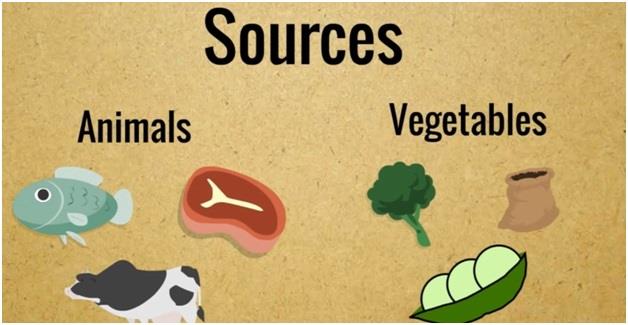
Vitamins and minerals are essential to any diet, and research suggests that they can help prevent cancer and heart disease, not to mention other health issues. But reality verifies: There have been many studies on foods that contain vitamins, but not necessarily on dietary supplements.
In fact, if you eat a diet rich in fruits, vegetables, and fortified foods, you will probably have everything you need. But supplements offer a form of health insurance easy to use.
Do you need them? Here is a brief guide to beneficial nutrients and what they can do for you.
What are the Vitamins?
A vitamin belongs to a group of organic substances found in natural foods in small amounts. Vitamins are essential for normal metabolism. If we take too few vitamins, some diseases can occur.
A vitamin is at a time:
- An organic compound, which means that it contains carbon
- An essential nutrient that the body cannot produce adequately and from which it must draw food.
There are currently 13 approved vitamins.
Why do we Eat Vitamins?
To understand why we need vitamins, it is best to understand what vitamins are. Vitamins are compounds that are necessary for our normal growth and normal function that we cannot produce in our body, so we must bring them back from our food.
Most of the compounds that our body cells need for our health can be produced by our cells from other nutrients. For some reason, we have evolved without the ability to make the small number we call vitamins. They were abundant in ordinary foods during evolution, so we did not have to do them. We only need small amounts of vitamins, which are still present in large quantities in many foods, but they can be low in vitamins and can affect your health.
Is it good for your Health?
Researchers in the Iowa Women’s Health Study tracked more than 38,000 women aged 55 and over for a period of 20 years. Calcium supplements were associated with a slightly lower risk of death. But some other commonly used supplements, especially iron, were associated with an increased risk of death.
For people with certain medical conditions, such as anemia, iron supplements are often essential. But this study suggests that for healthy people, the iron supplement in the form of a supplement can cause damage.
Other vitamin and mineral supplements can do more harm than good. According to the Mayo Clinic, research suggests that taking vitamin E supplements can increase the risk of heart failure and premature death. The Mayo Clinic also warns that taking more than 200 milligrams of vitamin B-6 daily can cause nerve pain and convulsions. Recent research from the National Institutes of Health indicates that too much vitamin A can be harmful to your bones.
Consult your doctor for more information on the risks and potential benefits of vitamin and mineral supplements.
List of Vitamins
Here are the different types of vitamins.
Vitamin A
Good sources include liver, cod liver oil, carrots, broccoli, sweet potatoes, butter, kale, spinach, squash, kale, cheese, eggs, apricots, melons, and milk.
Vitamin B
Good sources include yeast, pork, corn, sunflower seeds, brown rice, rye, asparagus, kale, cauliflower, potatoes, oranges, liver, and eggs.
Vitamin B2
It is the good source of asparagus, bananas, persimmons, okra, chard, cottage cheese, milk, yogurt, meat, eggs, fish and green beans.
Vitamin B3
Good sources include liver, heart, kidneys, chicken, beef, fish (tuna, salmon), milk, eggs, avocados, dates, tomatoes, leafy greens, broccoli, carrots, sweet potatoes, asparagus, nuts, whole grains, legumes, mushrooms and brewer’s yeast.
Vitamin B5
Good sources include meat, whole grains (which can be eliminated), broccoli, avocados, and royal jelly and fish ovaries.
Vitamin B6
Good sources are meat, watermelon, bananas, whole grains, vegetables, and nuts. When the milk dries, it loses about half of its B6. Freezing and canning can also reduce the content.
Vitamin B7
Good sources are egg yolk, liver, and some vegetables.
Vitamin B9
Good sources include leafy vegetables, legumes, liver, baker’s yeast, some fortified grain products and sunflower seeds. Some fruits have moderate amounts, like beer.
Vitamin B12
Good sources are fish, seafood, meat, poultry, eggs, milk and dairy products, fortified cereals and soy-based products and strong yeast food.
Vitamin C
Kiwi is demanding fruits on nutrition; especially as a fruit, it has the highest vitamin C content. The liver also has high levels. Cooking destroys vitamin C.
Vitamin D
Good sources: Exposure to ultraviolet B (UVB) light from sunlight or other sources causes the production of vitamin D in the skin. It is also found in oily fish, eggs, beef liver, and mushrooms.
Vitamin E
Kiwi is the best fruits also almonds, avocados, eggs, milk, nuts, green leafy vegetables, unheated vegetable oils, wheat germ and whole grains.
Vitamin K
Good sources are green leafy vegetables, avocado, kiwi. Parsley contains a lot of vitamin K.
Author Bio
Hey, this is Angela G. Neumann. Since 2013, I have provided various groups, organizations, and individuals with a wide range of health issues and wellness goals and nutrition programs to integrate health. Now I am working on Target Protein as a chief editor and writer. I am going to be a part of the admin of Nutrition Field very soon. My approach combines conventional health care, nutrition and a captivating connection of mind-body medicine.
Facebook: https://www.facebook.com/angela.g.neuman
Twitter: https://twitter.com/TargetProtein?lang=en
Google+: https://plus.google.com/u/0/101178476943139708946

HEY ! I’m Nil (Founder of OnlineDrifts.com), Digital Marketer, Affiliate Marketer and a blogger writing about blogging tips, SEO, Tech Tips etc.
